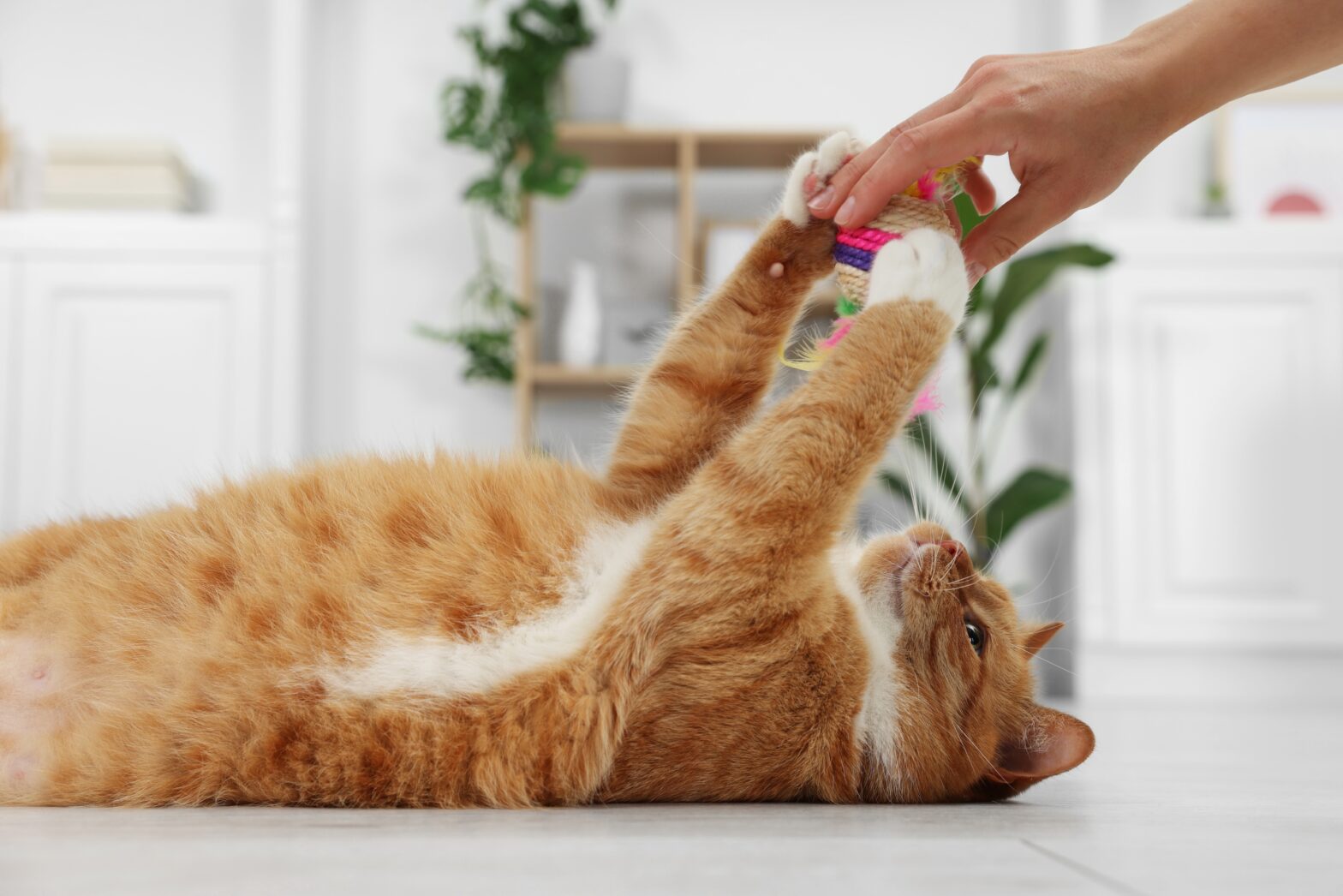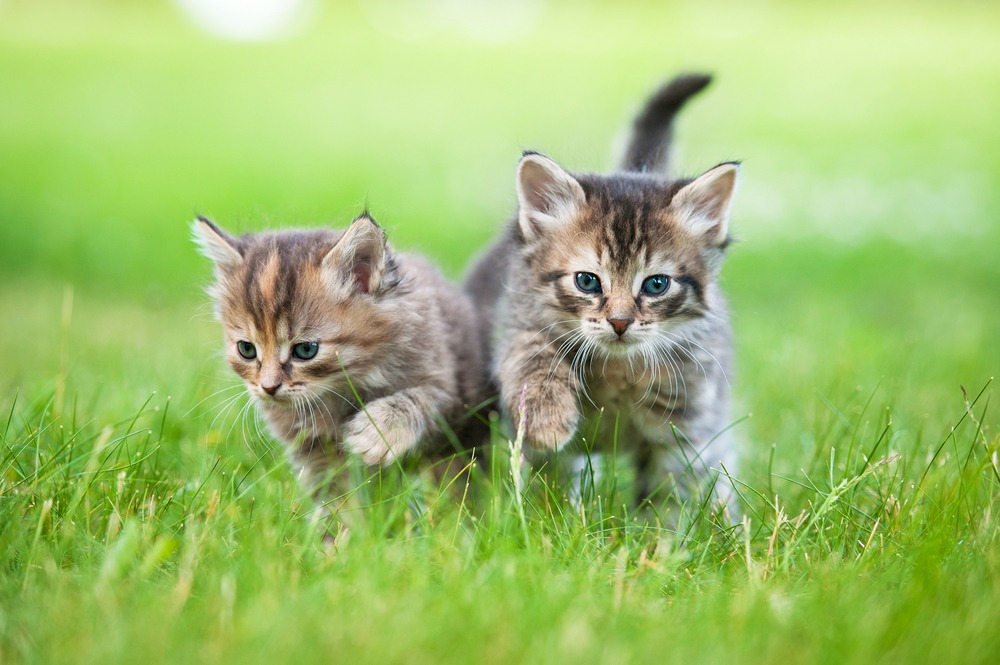
Caring for a kitten can be costly and time-consuming, but also incredibly rewarding. Your kitten’s first year is essential to its physical, social, sexual and behavioural development, so it’s important to make sure you give your kitten the best possible start in their new home.
The key to a happy and healthy kitten is establishing regular feeding and healthcare routines. This handy guide has all the information you’ll need to give your feline friend the best kitten care.

Getting ready for a kitten
Before you bring your new kitten home, you’ll need to buy supplies, kitten-proof your home and prepare your family for the new arrival. Kittens can jump, climb and scratch, so you should move breakable items and unstable furniture from the room, secure loose electrical cables and remove any other serious hazards from your kitten’s reach.
Once you’ve kitten-proofed your home, it’s time to fill it with pet essentials. You’ll need a soft bed, food and water bowls, cat carrier, collars with identity discs, grooming products, a litter tray, litter scoop and plenty of toys. We recommend that you buy a scratching post for your kitten to sharpen their claws on and choose a shallow litter tray to ensure easy access.
Before bringing your kitten home, you’ll need to decide where they will be sleeping, who in the family will be responsible for feeding and which areas of the house they’ll be allowed to roam in. If you have any children, you need to make sure they know that kittens are not toys and that they can bite and scratch if provoked. You should never leave young children or other pets alone with your kitten until you’re positive there won’t be any problems.
Health and insurance
It’s a good idea to arrange a visit to your local vet as soon as you bring your kitten home, to start the vaccinations and treatments your new pet will need. All kittens must be regularly vaccinated to protect against common diseases, starting when they are nine to 12 weeks old. Until your kitten is fully vaccinated, you should not take them anywhere where they may come into contact with other cats or dirt that may be infected.
Your kitten will require booster vaccinations once a year throughout their adult life to protect against disease. You’ll also need to get your kitten microchipped at around eight weeks old. The procedure only takes a few minutes and makes it easier to reunite lost kittens with their owners.
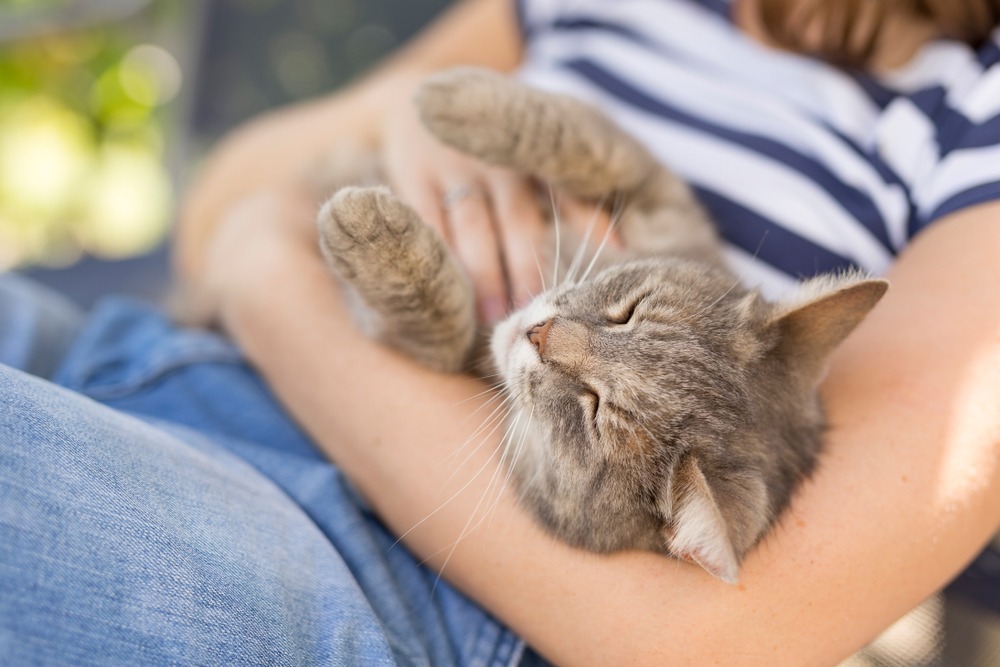
It’s also recommended that you take out pet insurance, as expensive vet bills can soon add up for regular treatments or unexpected accidents. Along with veterinary bills, pet insurance can cover the loss and theft of your kitten, death by illness or injury and liability. You can reduce the cost of pet insurance by having your kitten vaccinated, neutered and microchipped.
Feeding
Kittens grow much faster than adult cats and therefore require a special diet to aid their rapid development. During their first four weeks of life, kittens get all the nutrition and antibodies they need from their mother’s milk. At four to eight weeks, they’ll need to gradually move onto solid food, mixed with cat milk replacement or wet kitten food. Kittens should be feeding solely on solid kitten food once they reach ten weeks.
Kittens should eat at least four times a day from weaning then drop to thrice-a-day feedings over six months. When your kitten is about 12 months old, you should switch them from a kitten diet to one that’s suitable for adult breeds. Kittens hit puberty around six months of age but do not reach adulthood until they are around one year old.
Cats generally eat only what they need, so you should make sure your kitten has constant access to food and fresh water so that they can eat whenever they want. Kittens have smaller stomachs and higher metabolisms than adult cats, so they need to eat little and often.
For indoor kittens who don’t get much exercise, portion-controlled feeding twice a day is best. Your kitten should get most of their calories from kitten food rather than treats, but if you do want to give your cat something extra, try our kitten friendly Chicken Lick-e-Lix.
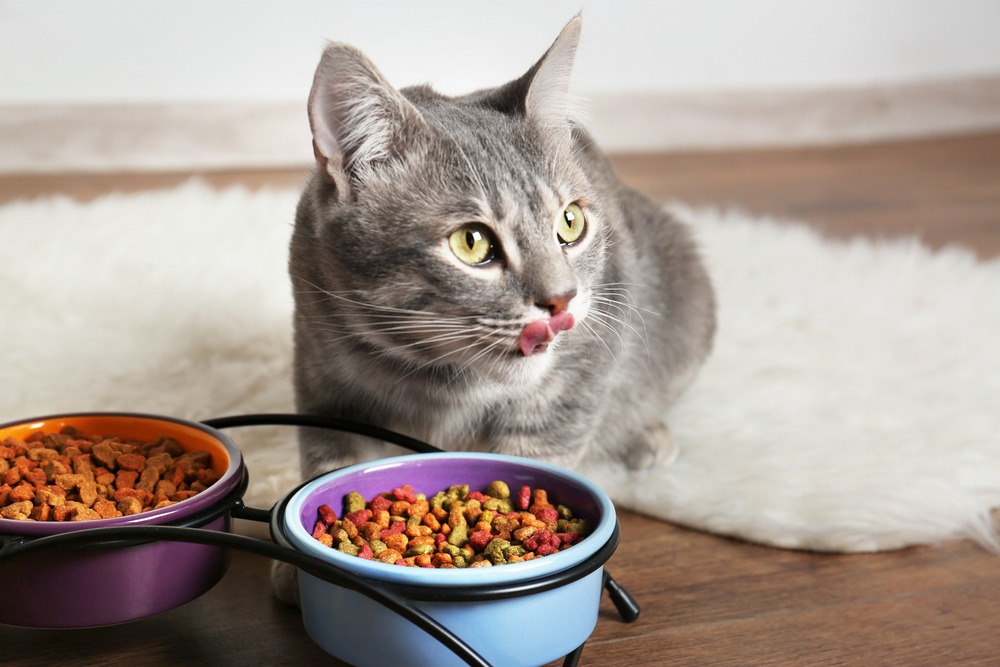
Training and behaviour
Your kitten should stay indoors for at least a week after their second injection, and most experts recommend keeping a kitten inside until it’s at least four months old. During this time, you should teach your kitten the social skills they’ll need to navigate the outside world. You can teach your kitten their name by calling them it regularly while you play, and rewarding them if he comes when called.
Although kittens needs attention, companionship and care, they are naturally competitive and proud pets. If you have more than one kitten, they may be happy to share litter trays in the beginning, but they will need separate toilet areas as they get older. Head-bumping, nuzzling and licking usually mean your kitten feels safe and happy, but a flickering tail, hunching up and hissing are signs to leave them alone.
The experiences your kitten has in their first year of life will make all the difference to their future temperament and character. Socialising and caring for your kitten will result in a friendly cat that enjoys company and behaves well around other animals.
The first days
Your kitten’s first few days away from their mother and litter will be a big change, so you’ll need to give them your undivided attention as soon as you bring them home. To make your kitten feel more safe, you should provide them with a small cardboard box or cat carrier where they can hide if they need to. Restrict your kitten to one warm, quiet room for the first few days, then slowly let them explore the rest of the house.
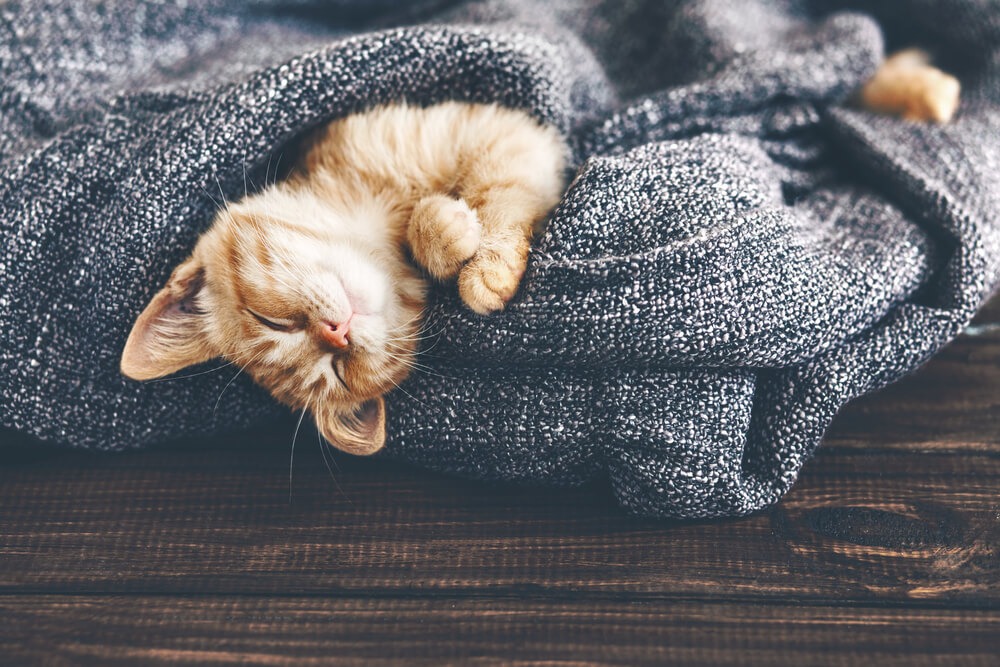
For the first few nights, your kitten will be restless and may yowl when they’re left alone. Make sure they have easy access to a litter box, feeding and water bowls, a cosy bed and a few toys to keep them entertained. Cats and kittens like to perch where they can watch over their surroundings, so you should clear some space on a high shelf or window sill to encourage your kitten to play.
The key to providing the best kitten care is to set clear rules and expectations. As your kitten grows, their behaviour will change and we recommend having them neutered at around six months of age to deter them from developing bad habits in later life. It’s also important to adjust your kitten’s diet to one that’s high in protein and calcium as they grow to meet their changing nutritional needs.
The Webbox difference
We pride ourselves on seeing the world from a cat’s point of view, so we can understand what they want – not just what they need. We put our love, creativity and fun into everything we make, offering delicious food and enticing treats designed to keep your kitten happy and healthy as he grows. For fantastic food and tempting treats, shop our cat food range today.

Shop for Dogs

Personalise your search:
Shop for Cats

Personalise your search:
Our Most Popular Products


Webbox Lick-e-Lix with Beef Cat Treats 75g


Webbox Squeaky Ball Dog Toy



Webbox Lick-e-Lix Cheese & Taurine Cat Treats 75g
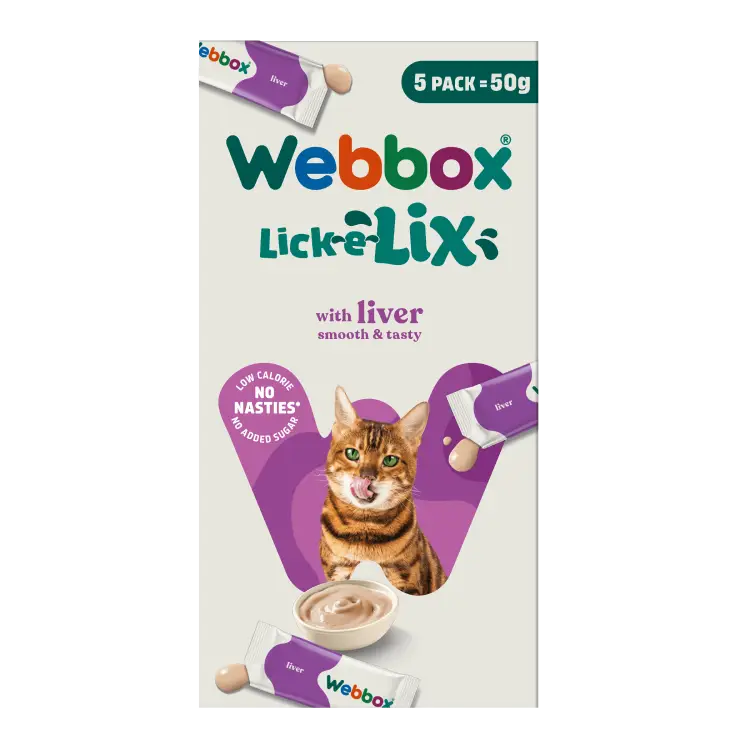

Webbox Lick-e-Lix Liver Cat Treats 50g


Webbox Lick-e-Lix Chicken Cat Treats 75g


